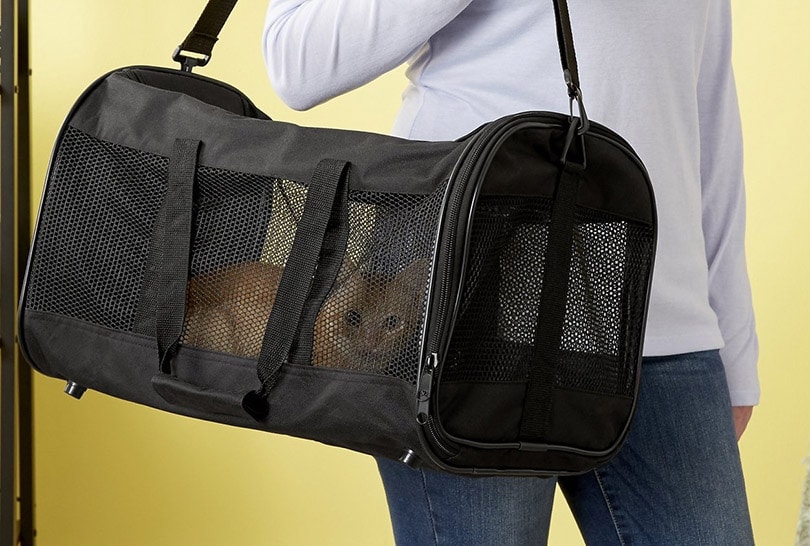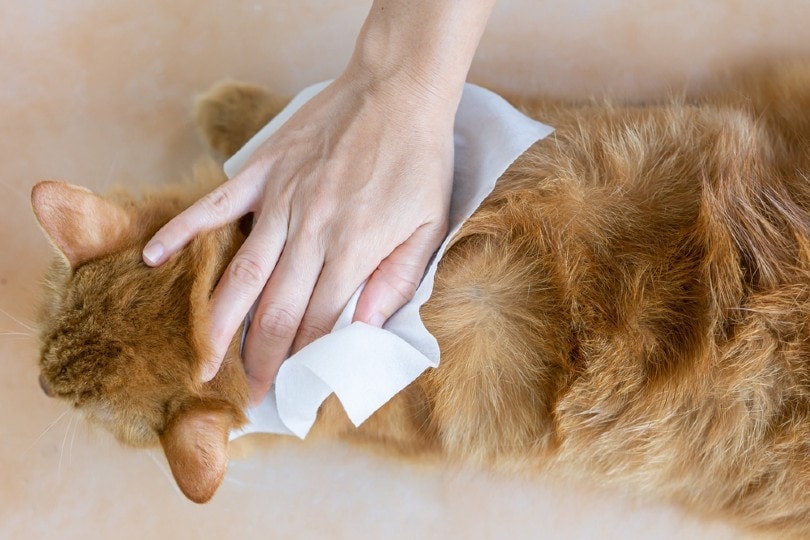17 Common Devon Rex Cat Health Problems: Vet Approved Facts
By Kit Copson
Updated on

Click to Skip Ahead
The Devon Rex looks like a cat that jumped straight out of a fairytale book and decided to stay curled up at your side in the real world. These loving, good-humored, and sprightly little cats tend to live long, healthy lives, but there are still some general and breed-related health conditions you should be aware of if you share your life with a Devon Rex.
 Top 13 Genetic Predispositions of Devon Rex Cats
Top 13 Genetic Predispositions of Devon Rex Cats
To begin, we’re going to take a look at the conditions that Devon Rexes are predisposed to genetically. Just bear in mind that this doesn’t mean your Devon Rex will definitely develop any of the following conditions. This is purely a heads-up as to the genetic health issues the Devon Rex, as a pedigreed breed, is more susceptible to and could possibly experience at some point in their life.
1. Hypertrophic Cardiomyopathy
Devon Rexes have been linked to heart disease, with hypertrophic cardiomyopathy being the most commonly diagnosed form of the condition. It occurs when the heart walls thicken, causing heart function to decrease. In severe cases, blood clots can form in the heart, which can obstruct blood flow in other parts of the body. This is known as thromboembolism.
In some cases, cats show no signs at all. In cases where symptoms do manifest, your cat may breathe too quickly, hold their mouth open when breathing, or appear lethargic. Echocardiography will show whether or not a cat has the disease, and the prognosis can vary. There is no cure for the condition, but it can be treated with medication to improve your cat’s quality of life.
2. Aortic Thromboembolism
Due to the Devon Rexes’ predisposition for heart disease, in serious cases, they can develop aortic thromboembolism as a result. This condition describes a blood clot that has moved from its original location through the aorta and has become lodged elsewhere in the body. This can impact the blood flow to a cat’s limbs and can cause paralysis, weakness, or lameness, most commonly in the rear legs.
A decrease or absence of a pulse in the legs, difficulty breathing, vocalizing in pain, appearing anxious, and sometimes vomiting may also occur. Treatment plans often involve oxygen therapy, blood thinners, pain relief, physical therapy, and keeping your cat as stress-free as possible.
3. Neonatal Isoerythrolysis
Neonatal isoerythrolysis is an uncommon condition in which a suckling kitten and their mother’s blood types are incompatible. In short, if a mother with type B blood births a kitten with type A or AB blood and the kitten nurses from her, the mother will transmit antibodies that are destructive to the kitten’s blood type. Sadly, affected kittens usually pass away within days.
Knowing the blood types of the mother and father cat before breeding can help to prevent neonatal isoerythrolysis from occurring, as can paying attention to which breeds are susceptible. The Devon Rex in particular has a higher likelihood of having B-type blood.
4. Vitamin K-dependent Coagulopathy
Cats with vitamin K-dependent coagulopathy are missing the enzyme responsible for absorbing vitamin K into their systems. Vitamin K is important in helping the liver to produce coagulants, and when the liver is unable to do this, it can result in the failure of the blood to clot appropriately. As a consequence, affected cats may bleed more than is considered normal.
Other signs include difficulty breathing, bruising, pale gums, lethargy, and passing bloody urine. Treatment for this condition usually involves vitamin K supplements and, in some cases, blood transfusions.
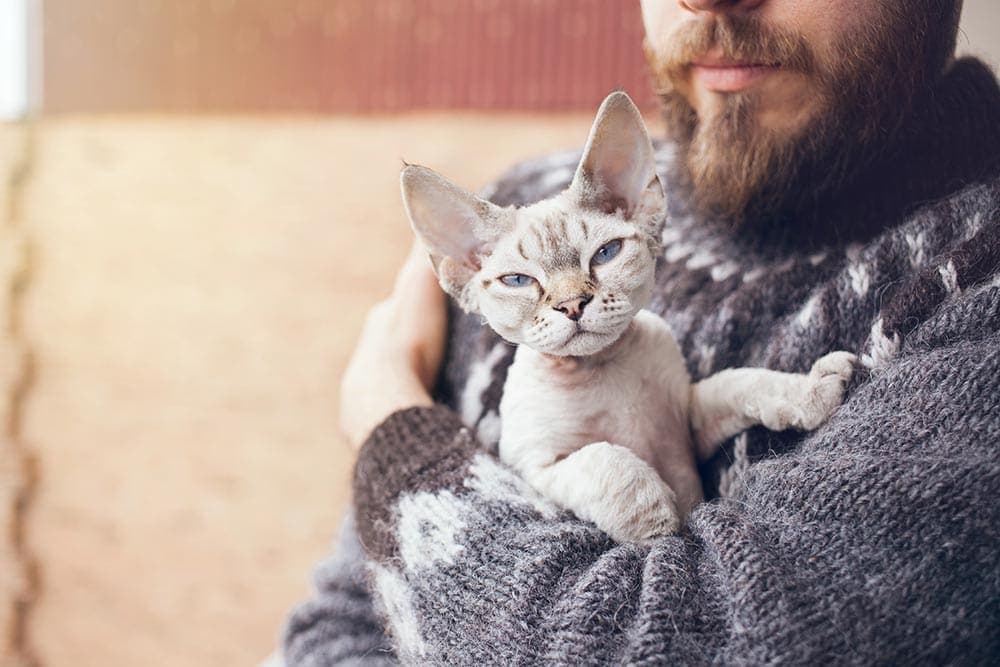
5. Patellar Luxation
When the patellar, also known as the kneecap, moves out of its usual position, this is a condition called patellar luxation. The patellar sits within a groove called the trochlear groove, and when this groove isn’t deep enough, it can cause the patellar to become displaced. Cats with curved leg bones are also at risk. Depending on the severity, affected cats may require surgery.
6. Hip Dysplasia
Another bone-related genetic condition that Devon Rexes are susceptible to is hip dysplasia. Hip dysplasia occurs due to the connecting joints (ball-and-socket) between the hip and thigh bones being malformed, resulting in the femoral head knocking against the acetabulum in a “grinding” motion. This can cause difficulties in motion and often results in osteoarthritis.
Watch out for your Devon Rex appearing in pain or experiencing difficulties with movement, as these are the key symptoms. Treatment options include surgery, physical therapy, and medication.
7. Amyloidosis
Amyloidosis occurs when amyloids (proteins) build up in the organs and tissues, causing them to function abnormally. The kidneys are the organs most commonly affected by this condition, and it is caused by infection, inflammation, or cancer in some cases. Signs vary but can include weight loss, increased urination, excessive thirst, lethargy, vomiting, and mouth ulcers.
8. Hypotrichosis
This is a rare disorder affecting the hair follicles, causing thinning or hair loss with patchiness on the head and torso in some cases. This can result in sunburns on the exposed skin if your Devon Rex spends time outside.
A skin biopsy can determine if your cat has this condition. Fortunately, the condition isn’t painful to cats, but a skin care plan should be put in place. You can talk this through with your vet.
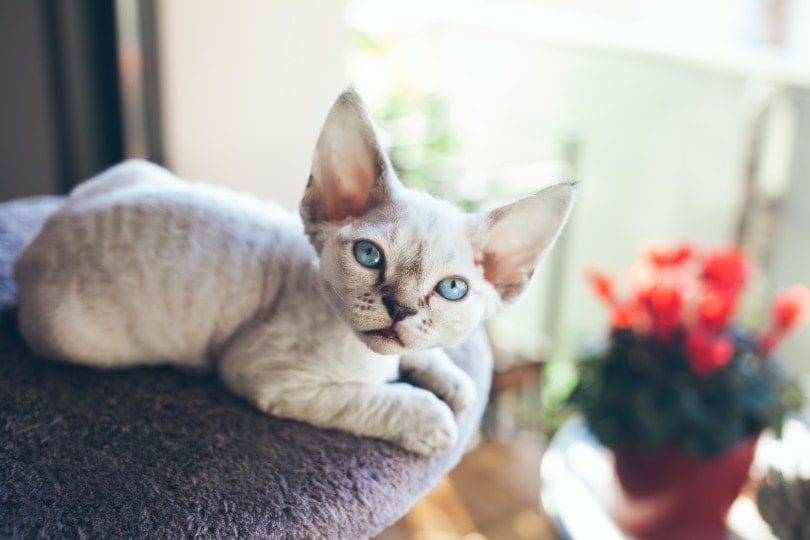
9. Urticaria Pigmentosa
This is a skin condition that causes itchiness as a result of excessive mast cells building up in the skin, lymph nodes, liver, and spleen. Though scientists have yet to discover all of the facts about this condition, it appears likely that it is genetic, and signs include skin lesions in the form of red spots. Parasites and allergens can worsen the condition. If you spot your Devon Rex scratching excessively, have a word with your vet to rule this condition out.
10. Dystocia
Dystocia has been linked to the Devon Rex and refers to the birthing difficulties experienced by some female cats. It has a number of causes, ranging from an oversized fetus to pelvic and vaginal structural abnormalities. Signs include contractions lasting more than 30 minutes without the mother giving birth to any kittens, crying out in pain, and a 4-hour gap between the time contractions start and the first kittens being born.
If you suspect that your Devon Rex is suffering from dystocia, call in a vet to take charge of the situation. In some cases, a vet will need to provide special medical treatment or surgically remove the kittens from the mother.
11. Hearing Loss
White Devon Rexes—particularly blue-eyed ones—are at risk of congenital deafness, so check with your vet if yours appears to have hearing issues. The good news is that it’s possible for your hearing-impaired Devon Rex to live a happy life indoors, but letting them outdoors could be very dangerous and is best avoided.
12. Devon Rex Myopathy
The signs of this condition become apparent in the first few weeks and months of life; they progress until around 9 months of age and then may stabilize. It is a muscle weakness disorder and cats may have an unusual way of walking, weak muscles, and inability to exercise. There is no cure.
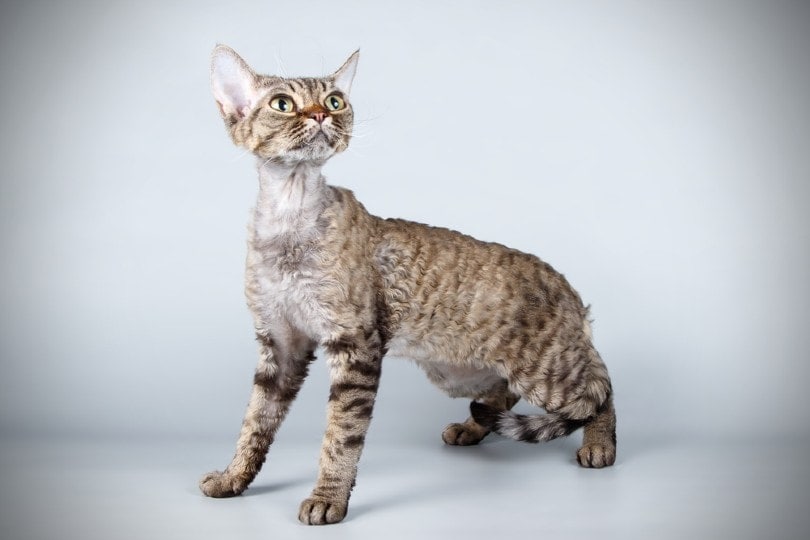
13. Polycystic Kidney Disease
PKD is an inherited disease in several breeds. The kidneys and sometimes other organs become affected by the presence of multiple cysts. Eventually, the result is kidney failure. Medications and special foods can help to improve the quality of life.
Top 4 General Conditions of Devon Rex Cats
Genetic predispositions aside, there are some health conditions that all cats have the potential to develop regardless of breed. Some of these conditions are of a more situational nature and are caused by lifestyle factors, whereas others are more difficult to anticipate, such as parasites.
The general health conditions you should keep an eye out for include:
14. Obesity
Cats that are not exercised regularly or have poor diet management are susceptible to obesity. A cat weighing between 10% and 20% more than the breed’s expected average weight is considered to be suffering from obesity. The issue with obesity is that it puts stress on your cat’s heart and other vital organs, causes mobility issues, and can result in premature death.
As such, it’s critical to monitor your Devon Rexes’ eating habits, feed appropriate portion sizes, and make sure they’re getting enough exercise.
15. Gingivitis and Stomatitis
Cats need a helping hand with teeth cleaning; otherwise, bacteria and plaque can build up, resulting in gingivitis. The gums become red and inflamed when cats have this condition, and they may also have bad breath.
In severe cases, cats can develop stomatitis, which is a more painful form of gum inflammation. If your cat is showing signs of gingivitis, it’s time to check in with your vet and schedule a cleaning.
16. Parasites
Feline gastrointestinal parasites usually take the form of worms such as roundworms, hookworms, or tapeworms. They can be transmitted by insect bites like mosquitoes or flea bites, by eating infected meat products, or coming into contact with infected fecal matter. Affected cats may vomit, have diarrhea, appear bloated, or you may spot worms in their feces. Vets usually prescribe medication to treat the condition.
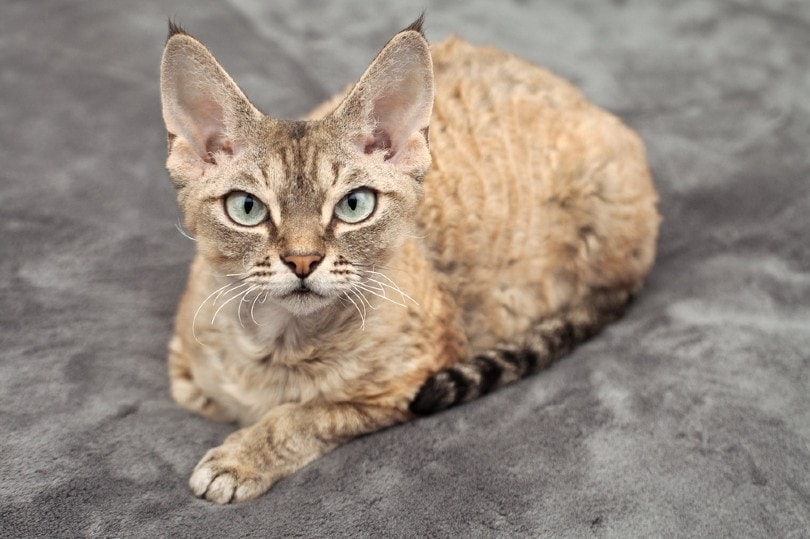
17. Feline Leukemia Virus (FeLV) and Cancers
All cat parents should follow a vaccination schedule to ensure their cat is up to date with all the jabs that could help prevent serious conditions like feline leukemia virus—a common and infectious disease in cats. FeLV can lead to the development of cancer and blood and immune disorders. Signs of FeLV include weight loss, poor appetite, a shabby-looking coat, swollen lymph nodes, and gastrointestinal issues.
 Conclusion
Conclusion
So, we’ve grouped the health conditions explored in this post into two categories—conditions that Devon Rexes’ are predisposed to due to genetic factors and general, common health conditions that can affect all cat breeds—to give you a heads up as to what to look out for if you’re planning on welcoming a Devon Rex into your life.
We hope that this post has been helpful and informative, and remember—when concerned or in doubt, always clear things with a vet.
See Also:
Featured Image Credit: Oleksandr Volchanskyi, Shutterstock

 Top 13 Genetic Predispositions of Devon Rex Cats
Top 13 Genetic Predispositions of Devon Rex Cats


